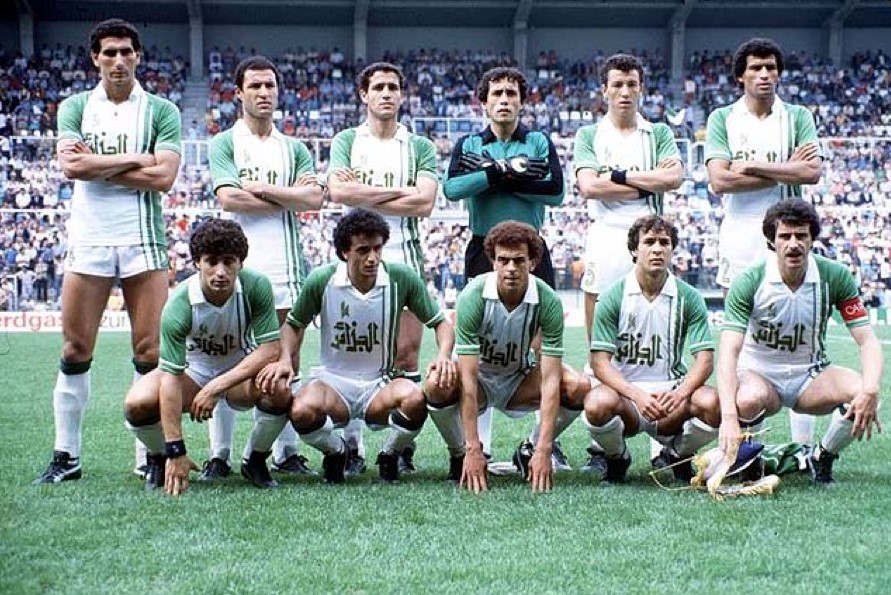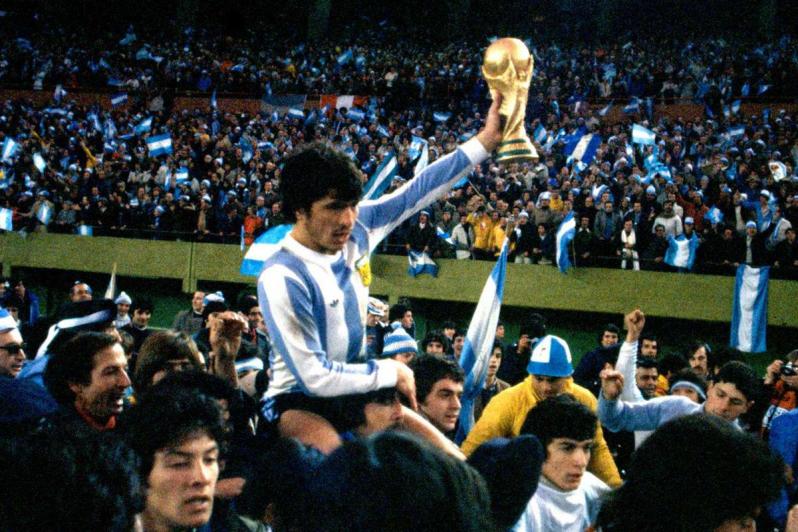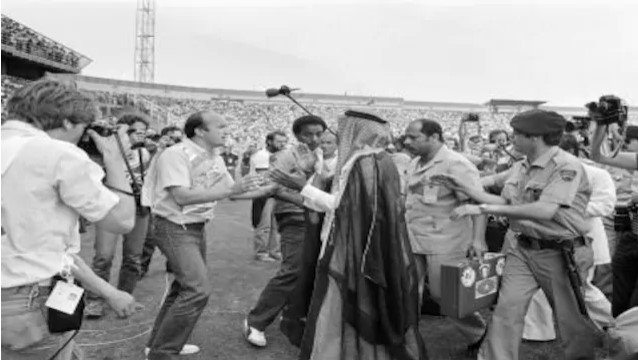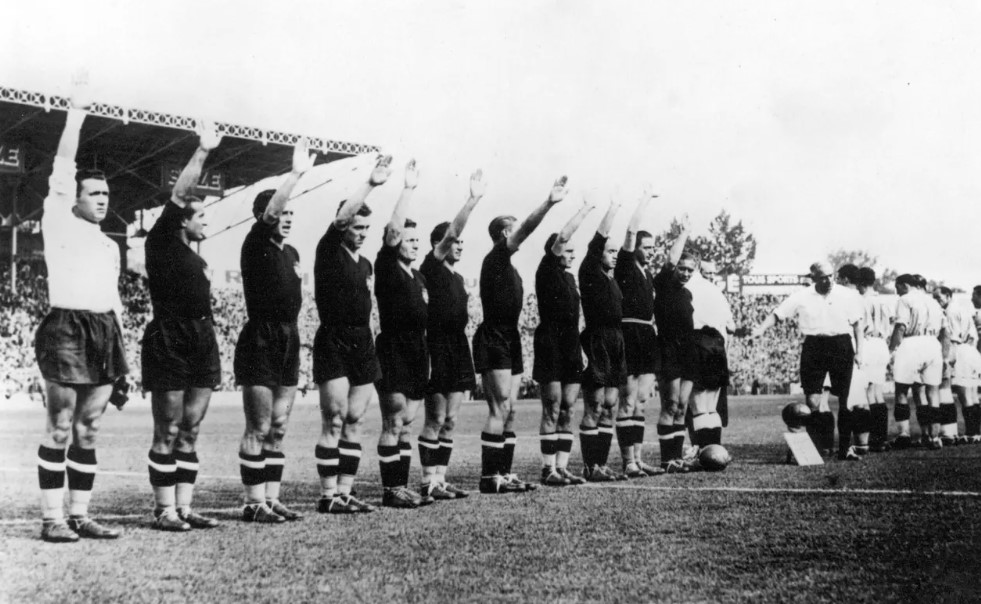Sepp Blatter Believes Qatar is Not the Place to Crown The World Cup Winners. Controversy Abounds the Tournament’s History
- By: Sean van der Merwe on November 25, 2022
- Categories: Entertainment

With a tournament as prominent as the FIFA Soccer/Football World Cup, there are multiple working parts that come together to make a success of the competition and crown the World Cup winners. It involves 32 nations coming together in one country for over a month of games. Some celebrate while others commiserate as teams both progress and fall out of the tournament. The preparations that go into hosting and managing such a popular tournament are immense. All the focus is on players like Christiano Ronaldo, Lionel Messi, and other superstars to take the accolades.
But whenever so many people come together there is bound to be politics. It’s just the social nature of the world. It’s fuelled by the high-stakes essence of the game and then heightened by multiple cultures coming together to vie for the prestige title of World Cup winners. As such, there is always going to be controversy on and off the pitch.
While on-pitch controversy is something that happens commonly, there are certain contentions that have crept into the history of the World Cup that are more controversial than others.
The World Cup Winners to Be Crowned in Qatar in 2022 – A Humanitarian Disgrace
Crowing the FIFA World Cup winners is one of the most prestigious occasions in the sport of football. The title gives a team the undisputed claim to the title of “best team in the world” for four years at least. It’s therefore important that the country hosting the tournament is above reproach, to shine a positive beam of light on the occasion. Unfortunately, the 2022 tournament hosts do not live up to that status, according to many.
There has been a huge public outcry in response to Qatar’s human rights violations and levels of ethical morality. There are numerous point markers that should have gone against the Qatar bill decision. These include:
- 🔸The bad way in which Qatar authorities have treated the migrant workers building the infrastructure for the World Cup.
- 🔸Qatar’s treatment of women as second-class citizens
- 🔸Qatar’s open indignation against LGBT rights.
- 🔸The fact that it’s the first time that Northern Hemisphere teams must play the tournament in the height of their own winter.
The chairman of FIFA, Sepp Blatter, who revealed Qatar’s successful bid to host the opportunity to crown the World Cup winners, has admitted that the country should never have received the vote, according to sources. It has led many to question the legitimacy of their campaign and level accusations of corruption at the decision.
Peru Throws the Semi-Finals to Argentina for Political Reasons
In 1978, Argentina was up against the wall with a near-impossible feat of beating Peru by four clear goals in order to jump Brazil on goal difference and advance to the next round of the competition. In a turn of events that would have surprised the bookies, it turns out that the Argentinians ran out 6-0 winners and went on to lift the World Cup winners’ trophy.
Their surprise trouncing of Peru attracted a lot of media attention, and many conspiracy theories were floated about the outcome. Numerous decades later the truth did surface. The dictatorship in Argentina was so desperate for the team to win that game, that they made an agreement with the Peruvian government to get them to throw the match – which they obliged.
Only Person from the Stands to Ever Influence a Game
In a group match between Kuwait and France in 1982, the Kuwait players found themselves 4-1 down. The fourth goal was a direct result of a whistle-blow from the stands. Thinking it was the referee, the Kuwait team halted in their tracks while the French proceeded to score.
In utter disbelief and frustration, the president of the Kuwait Football Association, Sheikh Fahad Al-Ahmad Al-Sabah, pulled all his players from the pitch. In response, the Ukrainian referee, Miroslav Stupar made the decision to disallow the goal so that the match could continue. This is the first and only time someone from the stands has made a decision that would alter the end result of the game. Ironically, France still went on to win 4-1, but it could have been 5-1.
Germans and Austrians Conspire Against Algeria in 1982
The next account is almost tantamount to match-fixing and could very well have altered who became World Cup winners in 1982. In the group stages of the 1982 World Cup, West Germany faced imminent elimination, unless they could beat Austria in the last game of the group rounds. Algeria was set to play Chile on the same day and concluded their game first with a 3-2 win. West Germany realised that they only needed to win the match by a single goal in order to advance. At the same time, Austria simply needed to avoid a defeat of three goals or more to move into the next round.

The Algerian team of 1982 that was kicked out after West Germany vs Austria conspiracy – Source: Unknown
The result of the game was clearly a mutual agreement between the two teams whereby they would keep to a low-scoring fixture as long as West Germany could take the full allotment of points. West Germany scored their needed goal in the tenth minute and that was basically the end of the game. The teams, thereafter, passed the ball aimlessly across the pitch with no intent for the remainder of the match, drawing indignation from the crowds and condemnation from the press.
It was decided in the aftermath of the game, by FIFA, that group stage fixtures would be played at the same time from then on forward at World Cup events. The controversy is still referred to today as “The Disgrace of Gijon.”
One Player Received Three Yellow Cards in One Match
This is a rather unbelievable faux pas by the referee during a game between Croatia and Australia in a group-stage match at the 2006 World Cup. Player, Josip Simunic was carded three times before leaving the pitch on this fateful night.
English referee, Graham Poll, was presiding. Simunic received his first yellow caution in the 61st minute when he pushed Mark Viduka away from the ball in frustration. However, in the 90th minute, Poll showed a second yellow card (instead of a red card as per the game rules) to Simunic for a bad tackle on Australian player, Harry Kewell.
Count the yellow cards in the clip below:
It was only after the game that Poll brandished a third card when Simunic promptly pushed the referee. This time, it was a third yellow followed by a red.
Poll’s referee notes after the game revealed why Simunic was not sent off after the second infringement. Apparently, he had written down Australian, Craig Moore’s name in the book by mistake. He puts it down to the fact that he got confused because of Simunic’s English accent.
Fascist Italians Take to the Pitch
In the World Cup just prior to World War II, Italy made a huge statement in their game against France in the quarterfinals. The French crowd who openly hated Fascism were ready to jeer the opposing team on the pitch.
Both Italy’s and France’s kit colours were blue, which meant that Italy would have to revert to their white kit for this occasion. However, as an order for Mussolini, the French adorned black shirts, a symbol of the fascist paramilitary. To add to the controversy, the Italians did the fascist salute before kick-off. Adding insult to injury, Italy went on to win the game and was crowned the World Cup winners that year.
Maradona’s “Hand of God” Goal
The only player controversy deemed fit for this list is what is famously referred to as “The Hand of God.” While controversy followed Diego Maradona throughout his career, this one takes the cake, for sure!
In the 1986 quarterfinals between England and Argentina, Argentinian striker, Maradona hit the first goal of the fixture into the net with his hand. Despite the clear foul, both the referee and side-line officials did not see the infringement, resulting in a 1-0 lead. Argentina went on to win the game 2-1, which made that goal the difference between the two sides. The Argentinian team then went on to claim the title of World Cup winners that year.
Watch the “Hand of God” goal below:
What Else Lies Ahead for This Year’s World Cup?
Well, with the pattern of controversy, it leaves us in suspense as to what else could creep its way into the World Cup that will be worth talking about for the next few decades. The Qatar bill is already a doozy, nevertheless, there is bound to be some hijinx on and off the field somewhere, so keep your eyes peeled.








